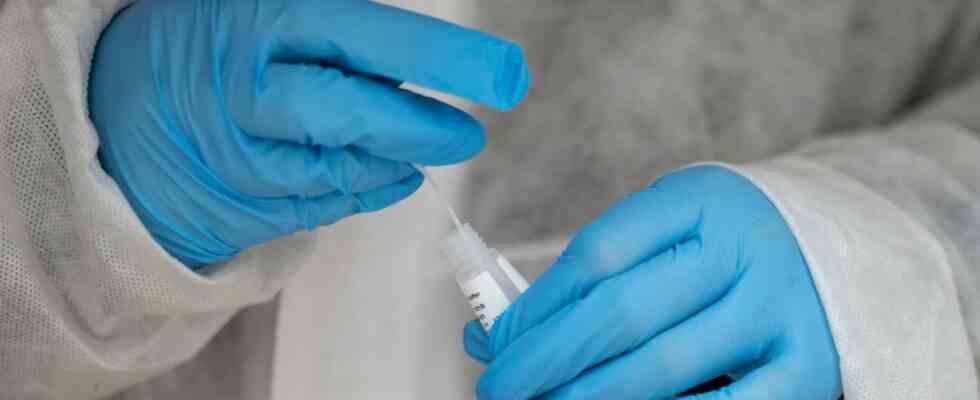If two state ministers from the CSU and the Greens form a joint alliance against a project by Federal Health Minister Karl Lauterbach (SPD), then the need must be great. The Greens in Berlin sit together with the SPD and FDP in the government. But a current draft from Lauterbach’s house to combat fraud in rapid corona tests leaves even Baden-Württemberg’s Health Minister Manne Lucha from the Greens with no other choice.
In a joint move this Monday with his Bavarian colleague Klaus Holetschek from the CSU, Lucha attacked Lauterbach’s project as “the worst possible solution”. It doesn’t get any clearer. The draft for a revised test regulation presented by Lauterbach’s ministry is not practicable, criticizes the Green Lucha. According to the will of Lauterbach’s ministry, the Robert Koch Institute (RKI) and the health authorities of the cities and districts are to be involved in the future in order to prevent even more fraud.
Hundreds of investigations are ongoing nationwide. The damage caused by private quick test stations with incorrect, because excessive bills are said to amount to more than one billion euros. In total, the state has already spent around twelve billion euros on corona tests by private operators. RKI boss Lothar Wieler already listed several deficiencies in the draft regulation in a letter to Lauterbach’s ministry in July. The RKI is to analyze the billing data from private quick test stations so that the health authorities can then take action against suspected fraudsters.
The health authorities have neither the staff nor the necessary expertise for this, says Bavaria’s Health Minister Holetschek. His Baden-Württemberg colleague Lucha adds that fighting white-collar crime is “not one of the areas of responsibility of the public health service, as is well known.” That reads as if Lucha had to explain to his federal colleague Lauterbach what the health authorities were for. Holetschek, in turn, says that the new test regulation is “bad for fighting the pandemic, for public health and for combating fraud in billing”.
Holetschek accuses Lauterbach of serious omissions. The federal government would know if it had coordinated “even once with the states and municipalities”. Unfortunately, the federal states “were not asked again”. According to Lucha, there would be a completely different, much better solution than the one proposed by Lauterbach. State-funded rapid tests should be limited to “clearly defined professional providers such as doctor’s offices, pharmacies and emergency medical service organizations”. The federal government has “unfortunately not yet taken up this suggestion from Baden-Württemberg”.
Last week, the German Association of Cities declared that the municipal health authorities had neither money, staff nor the expertise to check in detail whether the accounts from test centers were correct. It is also illegal if the federal government wants to transfer this control task to the health authorities. The draft regulation of the Federal Ministry of Health states that the health authorities will incur an “unquantifiable compliance cost” for in-depth examinations. Costs for the federal government according to the draft: “None.”
Lauterbach therefore simply wants to pass on the costs incurred. But the states, cities and districts do not want to put up with that. Bavaria’s Health Minister Holetschek warns that according to the plans from Berlin, the health authorities should deal with billing fraud in autumn and winter and then have too little time for their core task, public health protection. That is also bad for the fight against the pandemic.

